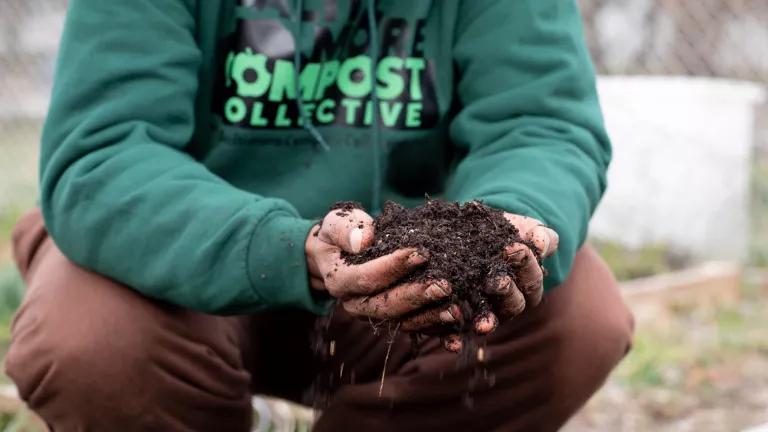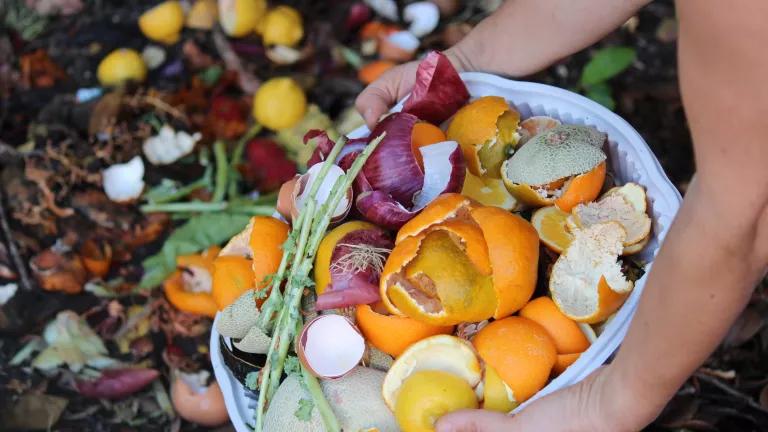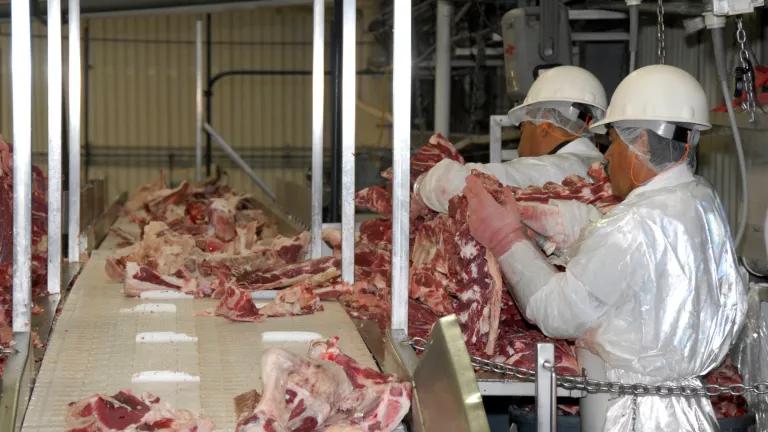Federal Food Waste Bills Offer Climate Solution
Two bills introduced in the House recognize the importance of reducing food waste to tackle the climate crisis, and lay the groundwork for quality job creation, significant GHG reductions, and improved soil health.

Representative Julia Brownley (D-CA), with Representatives Ann McLane Kuster (D-NH) and Chellie Pingree (D-ME), introduced the Zero Food Waste Act and the Cultivating Organic Matter through the Promotion Of Sustainable Techniques (COMPOST) Act to the House. Both bills recognize the importance of reducing food waste to tackle the climate crisis, and lay the groundwork for quality job creation, significant GHG reductions, and improved soil health. Senator Cory Booker (D-NJ) introduced companion legislation in the U.S. Senate.
In the U.S., nearly half of food is lost or wasted, translating to an estimated $408 billion spent on growing, processing, transporting, storing, and disposing of food that is never consumed. This is especially egregious given that at least 1 in 8 people in the US experience food insecurity (which hits communities of color even harder). Landfills are now the third-largest source of anthropogenic methane emissions in the U.S., and food is the single largest input by weight in our landfills and incinerators. All in all, food waste makes up 4% of total US GHG emissions. Given its potential for impact on people and the planet, food waste reduction should be prioritized at every level: household, business, municipal, state, and federal. The two bills introduced today will help support the expansion of food waste reduction and management across the country, offering state, local, and tribal communities an alternative to disposing of food waste in landfills and incinerators, in addition to maximizing our food supply.
The Zero Food Waste Act
The Zero Food Waste Act establishes an Environmental Protection Agency (EPA) program to award competitive grants to state, tribal, and local governments (with a total of $650 million to be awarded annually through 2030). Grants can support the development of policies, programs, and infrastructure at the local level focused on preventing food from going to waste, measuring food waste generation, rescuing surplus food, and recycling food scraps.
Projects eligible for funding include measurement and assessment activities to identify local generators of food waste and help create plans for regular food waste measurement (essential to tracking the success and progress of food waste reduction initiatives). Other eligible projects can focus on any type of food waste mitigation projects across the hierarchy of prevention, rescue, and recycling, including creating new markets and demand for compost products.
Priority will be given to grant proposals for projects in a community of color, low-income community, or Tribal community that has been disproportionately affected by adverse human health or environmental effects.
The COMPOST Act
Recycling food and other organic matter into compost provides a range of environmental benefits, including improving soil health, reducing greenhouse gas emissions, recycling nutrients back into soils, and enhancing water retention. The COMPOST Act helps ensure food scraps are processed into compost and make it back to the land to regenerate soils.
The COMPOST Act designates composting as an approved conservation practice (like cover crops) for U.S. Department of Agriculture (USDA) conservation programs and would make compost projects eligible to receive federal funding and assistance. Additionally, the Act creates a USDA grant and loan guarantee program to provide $200 million annually over 10 years for composting infrastructure projects, including organics collection and processing at the industrial, community, or household level.
Priority will be given to grant proposals that incorporate the participation of small and diverse businesses (such as those led by Black people, Indigenous people, or other people of color); that create opportunities for hiring and leadership development practices that are inclusive and provide living wages; and/or that serve disadvantaged and low-income communities, engage Black farmers, Indigenous farmers, and other farmers of color, or incorporate an environmental justice plan or principles.
The US Food Loss and Waste Action Plan, developed by NRDC, World Wildlife Fund, Harvard Food Law and Policy Clinic, and ReFED, asked for leadership from the federal government to achieve the national goal of reducing food waste by 50% by 2030. Now, the federal government is showing that leadership through the introduction of these bills. Other critical stakeholders are also joining in—the bills have widespread support, including from companies, local governments, and grassroots organizations, many of whom are partners of NRDC’s through our Food Matters initiative.
Food waste reduction is a top climate solution—and we thank these policymakers and supporters for putting a spotlight on the opportunity and promoting these essential actions at the federal level.




